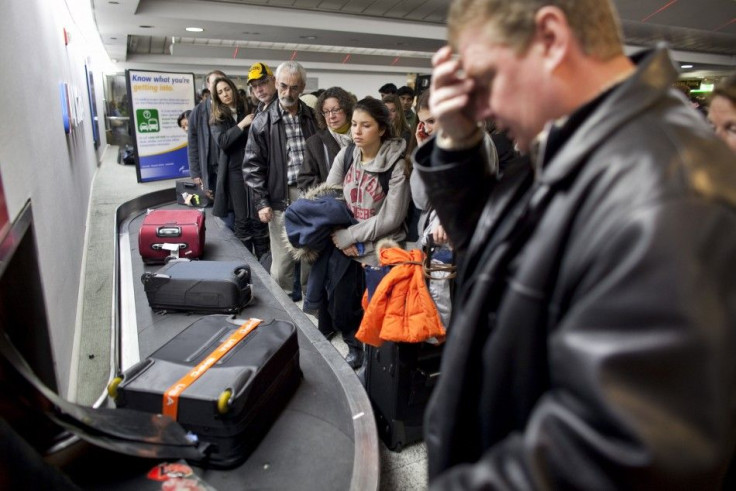Hate Checked Baggage Fees? A Proposed Bill Could Help

In a recent survey from the U.S. Travel Association, the number one complaint was people who bring too many carry-on bags through the security checkpoint. One Senator hopes to change that by limiting the fees airlines can charge for checked baggage.
Sen. Mary Landrieu (D-La.) introduced legislation that would guarantee passengers one checked bag without the financial burden of paying a fee, or the headache of trying to fit everything into a carry-on.
Landrieu told The Washington Post, Many airlines consider checking a bag not to be a right, but a privilege - and one with a hefty fee attached.
According to Landrieu, between 2008 and 2009, airlines collected $3.9 billion in checked-luggage fees.
The new bill would allow passengers to check one bag for free. It would also prohibit fees for regular-size carry-on bags.
The bill would require airlines to tell passengers about restrictions on size, weight, and number of bags before they arrive at the airport, and it would mandate that airlines make public their fees for all types of baggage.
The number of carry-on bags has soared 50 percent since airlines began charging fees for checked luggage in 2008, according to TSA statistics. Eighty-seven million more carry-ons were brought on planes in fiscal year 2011 than in 2010. This dramatic increase has led to longer lines and a strained TSA.
According to the Air Transport Association, an airline industry group, less than one in four passengers pay a checked-luggage fee.
Airlines began charging for luggage in an attempt to counterbalance rising fuel prices and a sour economy. Some airlines like Southwest and JetBlue capitalized on the frustrations with advertising campaigns touting their charge-free rules on the first checked bag.
Only one U.S. carrier, Spirit Airlines, is known to have charged for carry-on bags.
In the recent U.S. Travel Association survey, the second greatest frustration for travelers was the wait time to clear the TSA checkpoint.
When you have to pay to check a bag, it increases carry-on luggage, and that means there is more to inspect at the gate and so forth for passengers to get on planes, Homeland Security Secretary Janet Napolitano said during a meeting of the Senate Appropriations subcommittee on homeland security.
The hope is, with less carry-on bags to scan, the wait times will drop.
TSA spokesperson Lisa Farbstein noted that wait times have decreased dramatically.
Over the last seven years, checkpoint screening has taken less than 20 minutes for 98 percent of passengers, she told IBTimes.
Landrieu hopes that her proposal can make the wait times even shorter and help travelers save time and money.
READ ALSO:
TSA Turns 10: What's Changed and What Needs to Change?
© Copyright IBTimes 2025. All rights reserved.






















